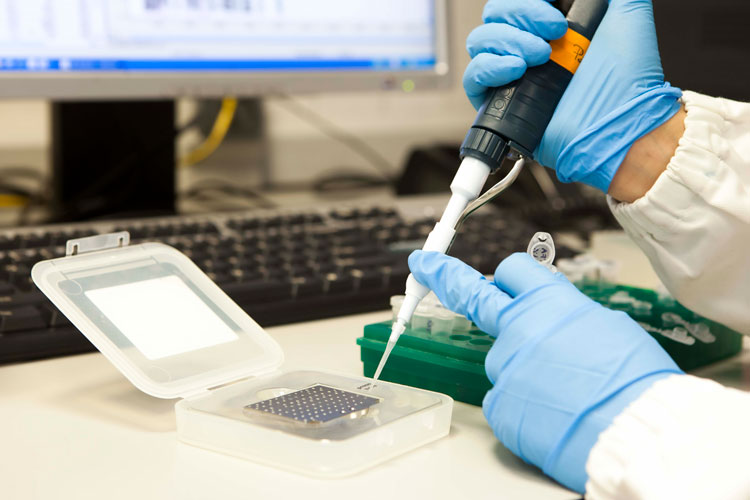Dr Jordi Duran, a researcher of IQS, carries out a project of the study of the physiological role of brain glycogen and its involvement in certain neurodegenerative diseases (pathological role)

Glycogen is a glucose polymer that constitutes the only carbohydrate storage in mammals. In recent years, brain glycogen has come to be considered an important player in brain metabolism, implicated in the development of neurodegenerative diseases.
Dr Jordi Duran, a researcher and professor with the Department of Bioengineering at the IQS School of Engineering, is an expert on researching the importance of glycogen in the normal functioning of the brain as well as the pathological consequences derived from the excessive accumulation of glycogen.
He is known for his outstanding research on Lafora disease, a serious neurodegenerative disease characterized by the accumulation of glycogen deposits in the brain, known as Lafora bodies. Research done by Dr Duran and his team has shown that this buildup in the brain is the cause of Lafora disease. Excess glycogen in astrocytes and neurons has dramatic effects on brain function. All these studies (listed at the end of the text) are being carried out with prestigious collaborators such as the Institute for Research in Biomedicine (IRB), the Institute for Bioengineering of Catalonia (IBEC), and the University of Kentucky.
Taking things a step further, Dr Duran is now leading the “Physiological & Pathological Roles of Brain Glycogen” (PPRBG) project, which has received funding within the “R&D Projects. Knowledge Creation” call for projects from the Ministry of Science and Innovation – State Research Agency.
The general objective of the project is to deepen the study of both physiological and pathological aspects of brain glycogen to advance scientific knowledge that can lay the foundations for the treatment of neurodegenerative diseases such as Lafora disease, as well as other neurological diseases where brain glycogen could play an important role, such as epilepsy, Alzheimer's disease, or amyotrophic lateral sclerosis (ALS), among others.
Studying both physiological and pathological aspects of brain glycogen at the same time offers an excellent opportunity to advance scientific knowledge that can lay the foundations for treating diseases related to brain glycogen metabolism.
Previous studies
1 Pellegrini P, Hervera A, Varea O, Brewer MK, López-Soldado I, Guitart A, Aguilera M, Prats N, Del Río JA, Guinovart JJ, Duran J., Impairs Glycogen Aggregation and Exacerbates Pathology in a Mouse Model of Myoclonic Epilepsy of Lafora. Mol Neurobiol. 2021. doi: 10.1007/s12035-021-02682-6 https://pubmed.ncbi.nlm.nih.gov/34962634/
2 Duran J, Hervera A, Markussen KH, Varea O, López-Soldado I, Sun RC, Del Río JA, Gentry MS, Guinovart JJ. Astrocytic glycogen accumulation drives the pathophysiology of neurodegeneration in Lafora disease. Brain. 2021, 44(8):2349-2360. https://pubmed.ncbi.nlm.nih.gov/33822008/
3 Varea O, Duran J, Aguilera M, Prats N, Guinovart JJ. Suppression of glycogen synthesis as a treatment for Lafora disease: Establishing the window of opportunity. Neurobiol Dis. 2021, 147:105173. https://pubmed.ncbi.nlm.nih.gov/33171226/
4 Duran J, Brewer MK, Hervera A, Gruart A, Del Rio JA, Delgado-García JM, Guinovart JJ. Lack of Astrocytic Glycogen Alters Synaptic Plasticity but Not Seizure Susceptibility. Mol Neurobiol. 2020, 57(11):4657-4666. doi: 10.1007/s12035-020-02055- https://pubmed.ncbi.nlm.nih.gov/32770452/















